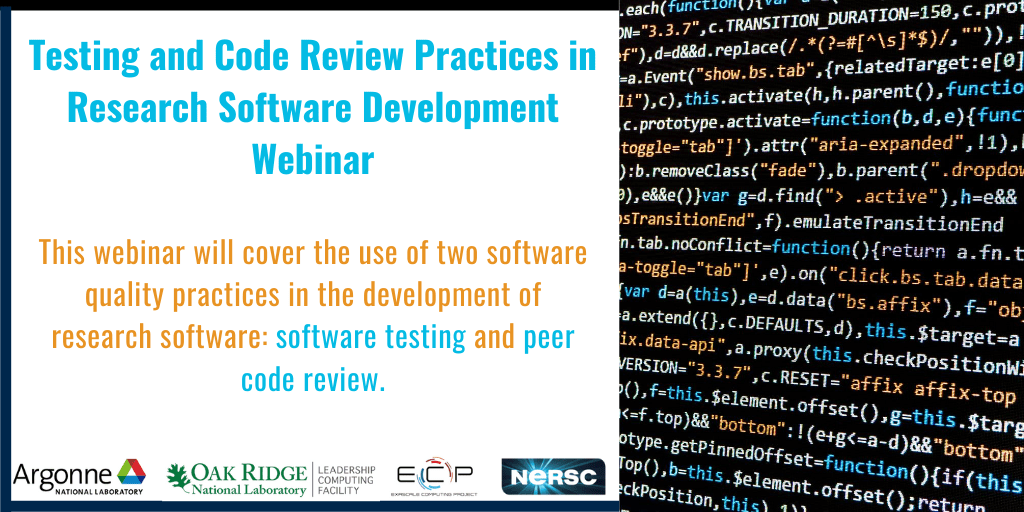Events

- This event has passed.
Testing and Code Review Practices in Research Software Development Webinar
September 9, 2020 @ 1:00 pm - 2:00 pm
Venue: Zoom Event

 MICDE’s Center for Scientific Software Infrastructure encourages you to check out this webinar!
MICDE’s Center for Scientific Software Infrastructure encourages you to check out this webinar!
This webinar is part of the HPC Best Practices webinar series. This series address issues faced by developers of computational science and engineering (CSE) software on high-performance computers (HPC).
Software quality in a research context is essential because research software is used in mission-critical situations, decision making, and computation of evidence for research publications. This webinar will cover the use of two software quality practices in the development of research software: software testing and peer code review. These practices in software development can lead to both improved scientific results through higher quality software in the short term and more maintainable software in the long term. While these practices are essential for any type of software, developers of research software typically do not use peer code review and software testing as frequently as they could for maximum impact.
The presenter, California Polytechnic State University Assistant Professor Nasir Eisty, will discuss the motivation, challenges, barriers, and necessary improvements to make the practices effective for research software development, based on studies of the research software community conducted via interviews, surveys, workshops, and tutorials.
Participation is free and open to the public, however registration is required for each event. This series is designed for HPC software developers who are seeking help in increasing their team’s productivity, as well as facility staff who interact extensively with users.
These webinars have been organized by the IDEAS project in collaboration with the DOE/ASCR computing facilities (ALCF, NERSC, and OLCF), and the Exascale Computing Project (ECP).